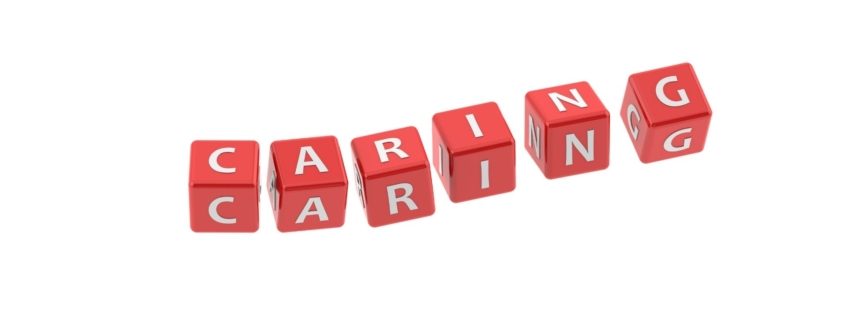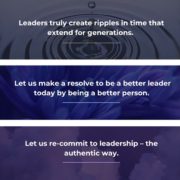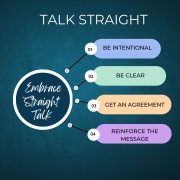Caring is Everything: Getting to the Heart of Humanity, Leadership and Life
Charles Dickens, author of the famous, A Christmas Carol, said, “I have always thought of Christmas as a good time, a kind, forgiving, charitable, pleasant time. It’s the only time in the long calendar of the year when men and women seem by one consent to open their shut-up hearts freely and to think of people around them as fellow passengers to the grave, and not another race of creatures bound on other journeys.”
A Christmas Carol was published 178 years ago, and I sincerely hope that we can take Dickens’s wisdom and apply it to our hectic lives today. We are all inspired by random acts of kindness, even on a small scale. But does our caring have to be random? What if we decide to be more intentional in our actions? What if caring means illuminating the difference between impulsively floating along and intentionally navigating a more satisfying course through life?
Intentional caring is what I believe sets great leaders apart from the rest. Over the past nearly four decades in the leadership development field, I have met some incredible leaders who care about the people they serve. They care about their communities. They care about the work they do. And they care about the impact they are having on the world.
Caring has a pervasive, enduring influence on the wellbeing of those around us. Authentic leaders know this. Caring impacts who we are as people and the places we work and live. So, when considering caring intentions for the coming holiday season, I want to propose that we make a to-be list instead of a to-do list. Here’s mine for today:
1) Be Kind. In Charlie Mackesy’s book, The Boy, the Mole, the Fox, and the Horse, the mole and the boy find themselves having a conversation one afternoon.
“I’m so small,” said the mole.
“Yes,” replied the boy, “but you can make a huge difference.”
At that point the mole asked the boy what he wanted to be when he grew up.
“Kind,” said the boy.
Be kind. Now that’s a worthy goal for any of us.
2) Be Connected. Some incredibly caring leaders have crossed my path this past eighteen months. One such leader, Trevor Muir, CEO of Surepoint Group has used this time to build a stronger company and a stronger community. When 2020 came around, “the stability of everything his organization knew was gone,” reported one team member. “Uncertainty and fear loomed in every corner. Isolation and lack of work grew rampant as the pandemic dug in for the long haul and put everyone there to the test.” ‘Trev’ humbly responded by navigating his company through it with compassion and an unwavering commitment to the people and communities they operate within. Among so many other things, he considered the mental health of his employees and delayed layoffs as he recognized that being in isolation removed many coping mechanisms people would typically access in a pre-pandemic world. He decided to continue celebrating the holidays and had gift bags made for every employee full of items sourced from local businesses within each branch location. People felt valued and loved that these baskets helped support local businesses within their communities. Trev used the pandemic to listen with people, to be attuned to their mental health challenges, and to build community through connections.
3) Be Curious. This week an Amazon driver mistakenly drove past our snow-covered driveway and onto our lawn, where he got stuck. Spinning his tires on the ice, he dug ruts in the grass. I’m embarrassed to say that I stormed out the door yelling at him, which didn’t solve a thing. It only created more anxiety for both of us, resulting in deeper ruts in the lawn as he “tried harder” to get out and an embarrassed driver who left, I imagine, feeling horrible about himself. I wonder how the ordeal would have turned out if I took my own advice and brought curiosity rather than hostility to the circumstance. A caring way to de-rail an activated stress response is to get curious. While being angry may have been an understandable response to this situation, getting angry only made it worse. Curiosity transforms anger into understanding, opens the door to empathy and compassion, helps solve the problem more effectively, and lowers your blood pressure. And it’s free.
If you talk with any organization responding to the mental health challenges in their community, you will know that this has been a tough two years to say the least. Addiction, family violence, and suicide prevention lifelines are all experiencing an increase in calls. Suffering, I have learned, looms largest when we try to go at it on our own. Marginalization is what happens whenever we feel that we don’t belong.
I want stress two things: You are not alone, and it is okay not to be okay. Please reach out for whatever support you might need now. There are amazing resources around and generous people who want to be needed. “Help” is truly the bravest thing we can say.









